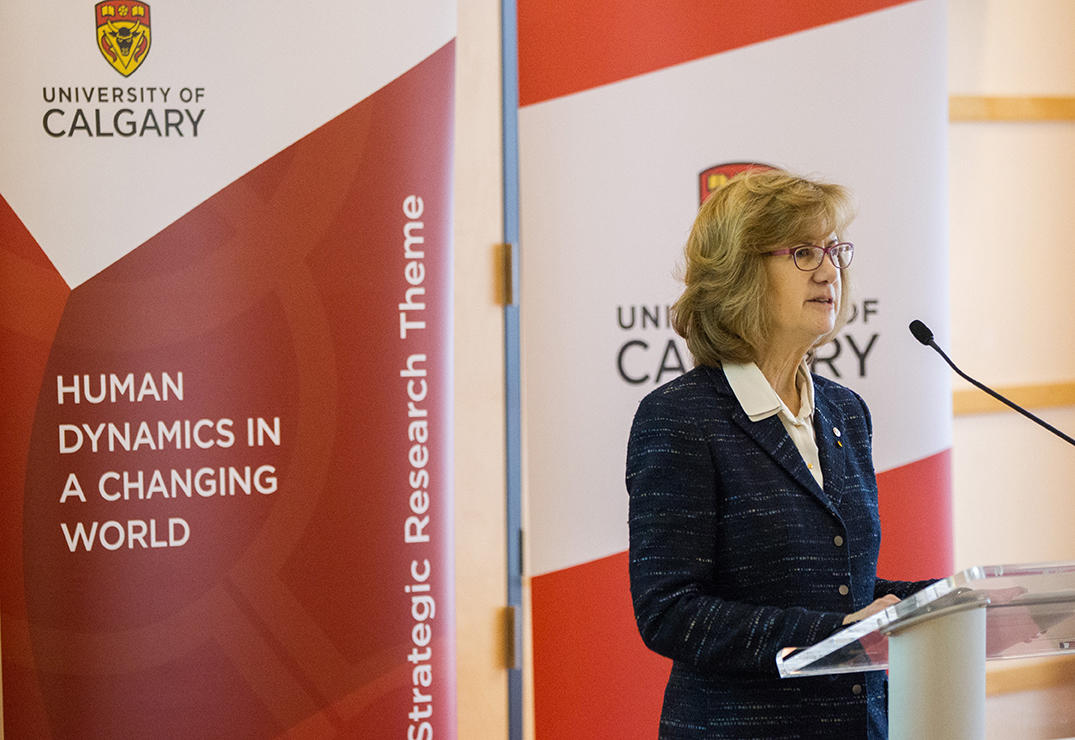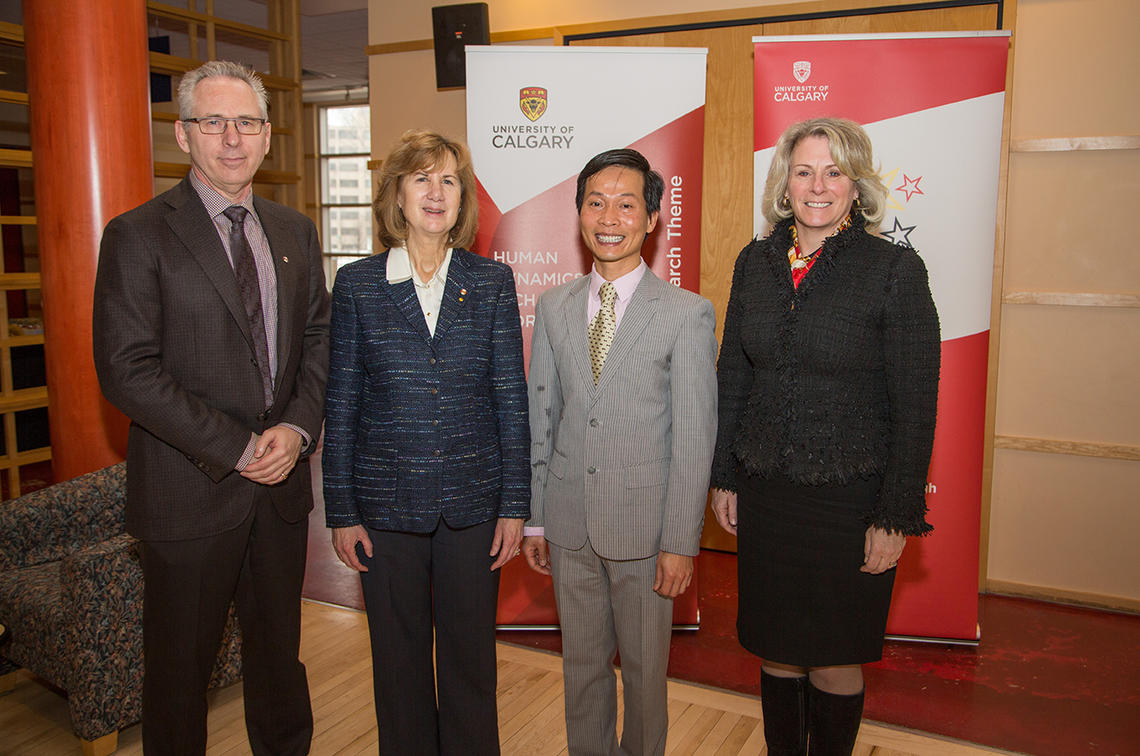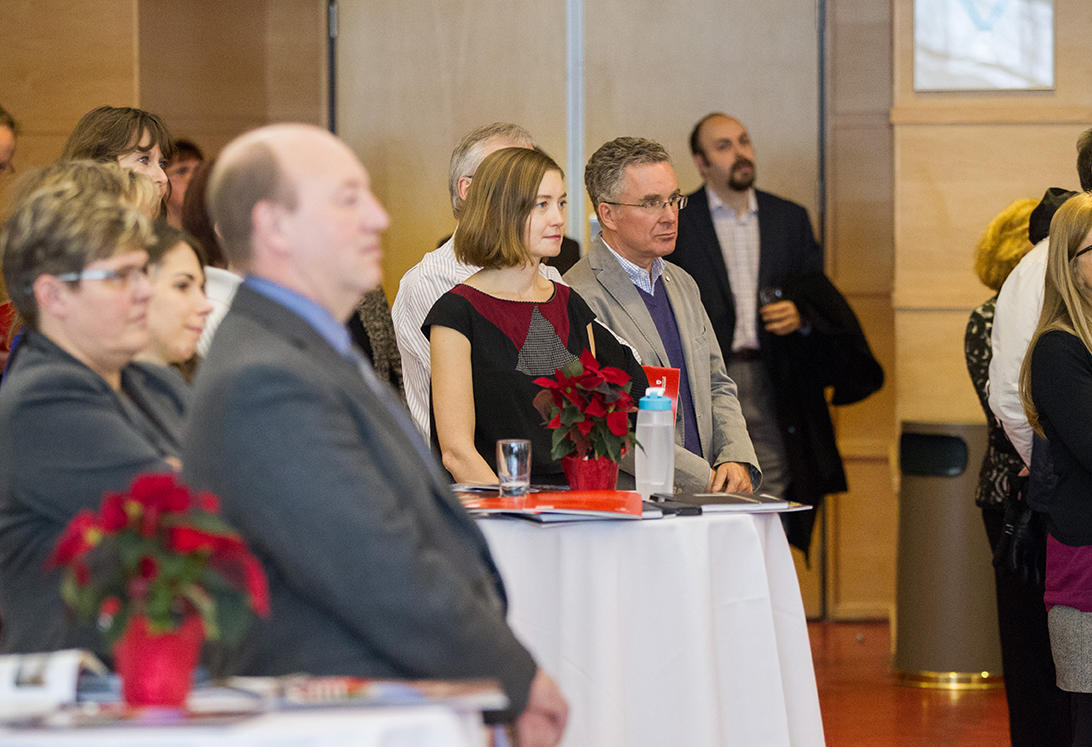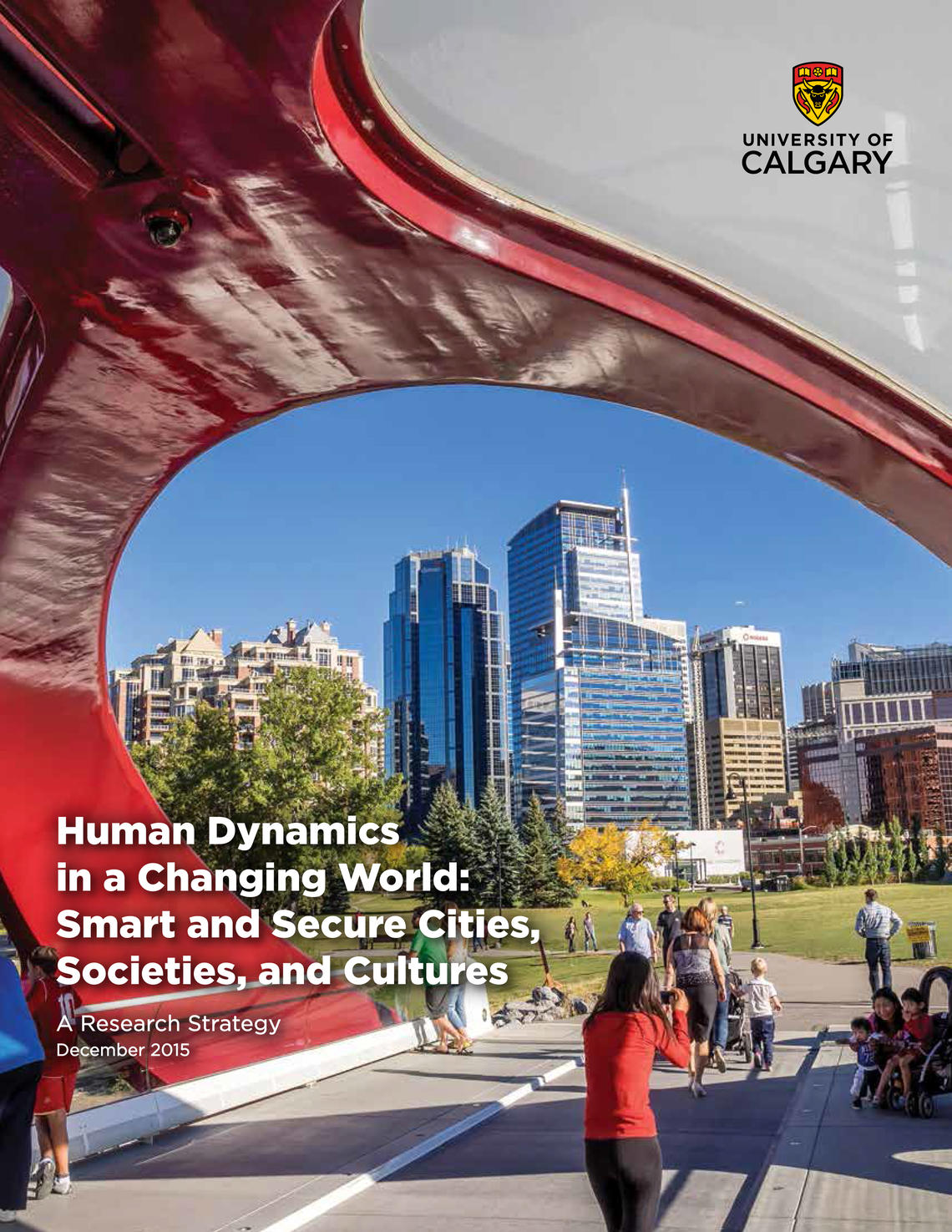
Anne Katzenberg, associate vice-president (research).
Adrian Shellard
Dec. 16, 2015

Anne Katzenberg, associate vice-president (research).
Adrian Shellard
The world is changing at a rapid pace. As global populations rise, resource limits loom and natural systems bend to adapt. But as we face growing pressures, new solutions are also emerging that can help us understand and manage these dynamics.
University of Calgary researchers have come together to understand these changes and to prepare for what’s ahead through the Human Dynamics in a Changing World: Smart Cities, Societies and Cultures research strategy.
Human adaptation to changes in climate, cultural interactions and technology over the long term of history inform our ability to adapt to today’s rapid change on a global scale. The Human Dynamics research strategy relies upon cross-disciplinary collaboration and problem-solving to address this rapid change. The strategy will further our understanding of our impact on the world in which we live and how we meet our needs in a sustainable way, while addressing the necessity for more inclusive opportunities for housing, education, healthcare, security and employment.
Sustainable systems for an ever-growing population
“There is an urgent need to identify ways of creating sustainable systems to support our ever-growing population,” says Ed McCauley, vice-president (research).
“Our scholars have united to explore and seek solutions to the diverse range of challenges humanity is up against. We’re excited to see the work that will result from this comprehensive, collaborative strategy.”
The hundreds of researchers who are aligned with this strategy will help guide our responses to, and understanding of, events and changes in the world around us, such as the current Syrian refugee crisis and Canada’s commitment to refugee resettlement; the economic, social, and environmental impacts of climate change in northern communities; and the challenges associated with increasing urbanization.

From left, Ed McCauley, Anne Katzenberg, Hieu Van Ngo, and Elizabeth Cannon.
Adrian Shellard
Creating healthy, liveable urban environments
Through their research, these scholars will also contribute to building vibrant cultures that are smart, safe and secure and that attract people and prosperity.
“More than half the world’s 7.2 billion people live in cities, and it is imperative that we create healthy, liveable urban environments,” says Anne Katzenberg, associate vice-president (research).
“The Human Dynamics research strategy represents the opportunity to enhance our understanding of the many different ways of being human.”
The research strategy includes three sub-themes, each focused on addressing the world’s grand challenges:

Attendees at the launch and networking lunch for the research strategy on Monday, Dec. 14.
Adrian Shellard
Healthy home design, fighting cyber crime and reducing youth crime
Researchers across campus are already engaged in projects that are encompassed by the new research strategy. Some examples include:

Human Dynamics in a Changing World: Smart and Secure Cities, Societies and Cultures.
Multidisciplinary research includes every faculty on campus
The Human Dynamics in a Changing World strategy incorporates research from a wide variety of disciplines, including researchers from every faculty across campus. Developing cultural competence is a key endeavour of the humanities, social sciences and fine arts. The research questions and methodologies in these disciplines provide a diverse means of analyzing cultural production, interaction, and conflict, with the aim of creating opportunities for citizens’ full engagement with and participation in society.
At the strategy launch on Monday, Dec. 14, Ed McCauley, vice-president (research) announced a $1 million investment to directly support researchers as they address the grand challenges within the Human Dynamics in a Changing World research strategy.